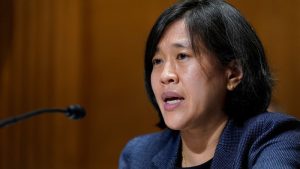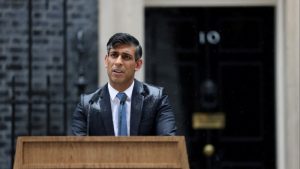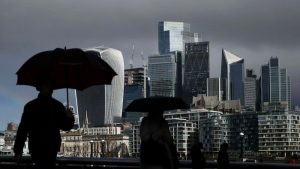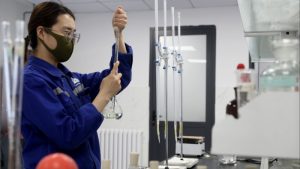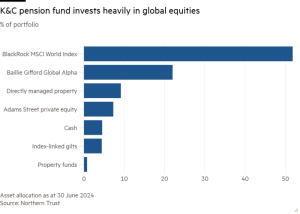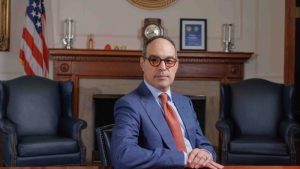early tallies suggest Fianna Fáil and Fine Gael set for fresh coalition
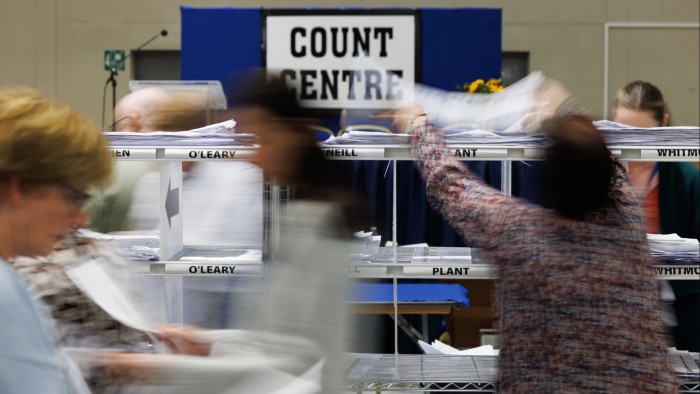
Unlock the Editor’s Digest for free
Roula Khalaf, Editor of the FT, selects her favourite stories in this weekly newsletter.
Ireland’s incumbent governing parties Fianna Fáil and Fine Gael appeared on track to form a fresh coalition on Saturday as counting continued in the country’s general election.
Early tallies suggested the centrist Fianna Fáil could emerge as the largest party, with 21.9 per cent of the votes, with conservative Fine Gael on 20.5 per cent and the main opposition party Sinn Féin on 19.1 per cent, according to an analysis by Virgin Media.
On Friday night an exit poll put Sinn Féin narrowly ahead of Fine Gael with Fianna Fáil third.
Only a handful of seats had been declared by Saturday evening. Results were expected to dribble in over the weekend as lengthy counts continued under Ireland’s proportion representation system. Forming a government could take weeks or months.
Fianna Fáil and Fine Gael have governed in coalition since the last elections in 2020 and had called on voters to back their experience, given fears of global economic turbulence as Donald Trump returns to the White House early next year.
Fianna Fáil leader Micheál Martin said there was a “route to government” but it was too early to say who would be in it.
It was not clear if the pair would have enough seats to form a government on their own. If not, they will probably need the support of at least one smaller party. Outgoing junior coalition partner the Green party appeared likely to lose most of its 12 seats.
“Today was not the day for us,” said Eamon Ryan, the Greens’ leader.
Fine Gael has been in power since 2011 and is seeking a record fourth mandate.
But Sinn Féin insisted it could still find a path to power.
“We have broken the mould here in this state and two-party politics is gone, consigned to the dustbin of history,” said Sinn Féin leader Mary Lou McDonald, who arrived at a Dublin count centre on Saturday evening to cheers.
Sinn Féin has no firm allies and it was not clear how it could secure the 88 seats needed to form a government as Fianna Fáil and Fine Gael both say policy differences make it impossible to form a coalition together.
Sinn Féin rattled business leaders during the campaign with promises of policy changes, tax cuts and spending pledges.
“Sinn Féin . . . has a very strong mandate from the people,” McDonald said. “Let’s wait and see where the numbers land and then I am going to very, very actively pursue other configurations that will result in a change [in] government.”
Social Democrat deputy leader Cian O’Callaghan said his party would “talk to all parties”. Asked if that included Sinn Féin, he said: “Yes.”
He predicted his party would be the fourth largest in the new parliament.
Notorious gangland figure Gerry “The Monk” Hutch, running as an independent, looked set to win a seat in Dublin after attracting strong support in inner-city areas.
The exit poll by Ipsos B&A pointed to housing as the most important issue among voters, and Martin as the top choice to be taoiseach, replacing incumbent Simon Harris from Fine Gael.
In the northwestern county of Donegal, a party campaigning for 100 per cent compensation for people whose houses are crumbling because of defective building materials also looked on course to take a seat.
#early #tallies #suggest #Fianna #Fáil #Fine #Gael #set #fresh #coalition
